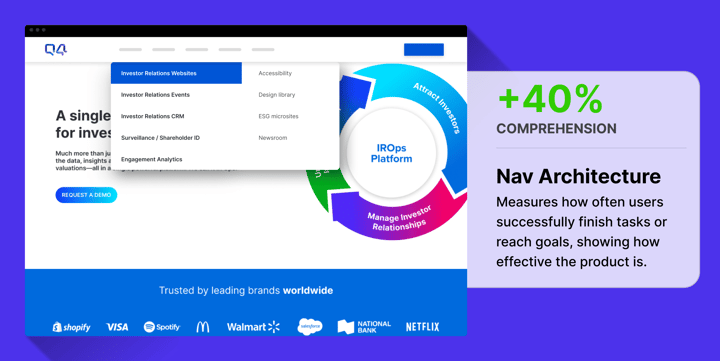Ethnography Unveiled: Understanding Human Behavior
Ethnography is a fascinating field of study that allows us to delve deep into the intricacies of human behavior and societies. In this article, we will embark on a journey to understand the world of ethnography, exploring its various aspects, types, and its relevance in today’s modern world. So, let’s dive right in!
🔩 The Nuts and Bolts:
- Ethnography captures the holistic view of societies. By immersing themselves in a community, ethnographers gain a comprehensive understanding of cultural beliefs, values, and practices, providing richer insights than other methods.
- Ethnography is crucial in social sciences. It helps researchers understand complex social structures, power relations, and cultural norms, enabling the development of more accurate and culturally sensitive policies and interventions.
- Immersive engagement is key to ethnographic research. Ethnographers spend significant time participating in daily activities, building trust with community members, which leads to authentic and nuanced insights.
- Different types of ethnography offer unique perspectives. Traditional, auto-ethnography, and critical ethnography each provide distinct approaches to studying culture, from personal reflection to challenging social inequalities.
- Digital ethnography explores online interactions. With the rise of the internet and social media, researchers analyze digital platforms to understand how technology influences social behavior and relationships.
- Ethnographic research faces unique challenges. Gaining community access, avoiding bias, and ensuring ethical considerations like informed consent and privacy are crucial for successful ethnographic studies.
- Ethnography is valuable in business and marketing. By understanding consumer behavior and cultural influences, businesses can develop more targeted and effective marketing strategies that resonate with their audience.
Understanding Ethnography
Definition and Importance of Ethnography
Ethnography, in its simplest form, is a qualitative research method that involves immersing oneself in a particular culture or community to gain a comprehensive understanding of their way of life. It goes beyond mere observation, as ethnographers actively participate and engage with the people they study.
Ethnography is of significant importance because it allows us to capture the holistic view of a society, shedding light on their beliefs, values, practices, and interactions. It helps us appreciate and respect cultural diversity, promoting a more inclusive world.
When conducting ethnographic research, scholars often spend extended periods living among the community they are studying. This deep level of engagement enables them to develop trust and rapport with the individuals, leading to more authentic insights into their lives. By participating in daily activities, rituals, and ceremonies, ethnographers gain a firsthand perspective that enriches their analysis.
The Role of Ethnography in Social Sciences
In the realm of social sciences, ethnography plays a crucial role in providing valuable insights into human behavior and societal dynamics. It helps anthropologists, sociologists, and researchers better understand the complexities of social structures, power relations, and the impact of cultural norms.
By immersing themselves within a particular community, ethnographers can unravel the underlying social dynamics, uncovering nuances that would be challenging to detect through other research methods. This intimate knowledge gained through ethnography empowers researchers to create more accurate and culturally sensitive policies and interventions.
Furthermore, ethnography allows for the exploration of how individuals within a community interpret and navigate their social world. Through in-depth interviews, participant observation, and the analysis of cultural artifacts, researchers can uncover the underlying meanings and symbols that shape people’s behaviors and interactions. This nuanced understanding is instrumental in challenging stereotypes and misconceptions, fostering a more nuanced and empathetic view of different cultures.
Steps in Conducting Ethnographic Research
Immersion: Ethnographic research begins with immersing oneself within the community being studied. This involves spending a substantial amount of time actively participating in their daily activities.
Observation: Ethnographers keenly observe the community, noting down their behaviors, interactions, rituals, and traditions. This observational data forms the foundation of their research.
Interviews: Ethnographers engage in conversations with key individuals within the community, seeking their perspectives and insights. These interviews provide a deeper understanding of the cultural context.
Data Analysis: Once the data is collected, ethnographers meticulously analyze it, identifying patterns, themes, and recurring phenomena. This analysis helps them make sense of the cultural practices and societal dynamics.
Challenges in Ethnographic Research
Undertaking ethnographic research is not without its challenges. One of the primary difficulties lies in gaining access to the community and building trust with its members. It requires patience, respect, and establishing authentic relationships.
Another challenge is the potential for bias and subjectivity. Since ethnography heavily relies on the researcher’s interpretation, there is a risk of personal biases seeping into the analysis. It is crucial for ethnographers to remain self-aware and constantly reflect on their own perspectives.
Furthermore, conducting ethnographic research often involves navigating complex ethical considerations. Researchers must carefully consider the potential impact their work may have on the community being studied. They must ensure that their research does not exploit or harm the individuals or cultural practices they are observing.
In addition, language barriers can pose a significant challenge in ethnographic research. When studying communities with different languages or dialects, ethnographers must find ways to overcome communication barriers. This may involve learning the local language, working with translators, or utilizing non-verbal forms of communication to gather data.
Moreover, the process of data analysis in ethnographic research can be time-consuming and labor-intensive. Ethnographers often have to sift through a vast amount of qualitative data, transcribing interviews, and organizing field notes. This meticulous process requires attention to detail and a systematic approach to ensure accurate and meaningful analysis.
Make your design decisions count.
Subscribe to Design Under Pressure. Get insights, UX metrics, and tools for bold, informed design.
We respect your inbox. Just insights. No fluff. Privacy Policy.
Different Types of Ethnography
Ethnography, a research method used in anthropology and sociology, comes in various forms, each offering a unique perspective on the study of culture and society. While traditional ethnography involves immersing oneself in a specific community to understand its customs and beliefs, there are other approaches that provide different insights into the complexities of human behavior and social interactions.
Traditional Ethnography
Traditional ethnography is a time-honored method that requires researchers to spend an extended period living among the community they are studying. By participating in everyday activities and building relationships with community members, ethnographers gain a deep understanding of the cultural practices and social dynamics at play. This immersive approach allows for a comprehensive exploration of the community’s values, rituals, and social structures.
Auto-Ethnography
Auto-ethnography takes a more introspective approach to the study of culture by focusing on the researcher’s personal experiences and reflections within a specific cultural context. By intertwining personal narratives with ethnographic research, auto-ethnographers can uncover the subjective nature of cultural interpretation and the influence of individual perspectives on the research process. This method encourages researchers to critically examine their own biases and assumptions, leading to a more nuanced understanding of cultural phenomena.
Critical Ethnography
Unlike traditional ethnography, critical ethnography goes beyond descriptive analysis to interrogate power dynamics, social inequalities, and systemic injustices within a society. By centering the voices of marginalized groups and challenging dominant narratives, critical ethnographers aim to spark social change and advocate for equity and justice. This approach emphasizes the importance of reflexivity and activism in research, pushing scholars to engage with the political implications of their work and strive for a more inclusive and equitable society.
UX Research Method
Ethnography in the Modern World
Ethnography, a methodological approach deeply rooted in the field of anthropology, has transcended its traditional academic boundaries and made significant inroads into the realms of business and marketing. In the dynamic landscape of consumer culture, ethnography serves as a powerful tool for businesses seeking a deeper understanding of their target market. By immersing themselves in the daily lives of consumers, observing their behaviors, and interpreting their cultural practices, businesses can glean invaluable insights that inform the development of more nuanced and effective marketing strategies.
Ethnography in Business and Marketing
Ethnography has found its place not only in academia but also in the business and marketing world. By employing ethnographic techniques, businesses gain insights into consumer behavior, preferences, and cultural influences. This allows them to develop more targeted and effective marketing strategies that resonate with their target audience.
Moreover, ethnography in the business context extends beyond mere observation; it involves active engagement with consumers to establish rapport and trust. Through in-depth interviews, focus groups, and participant observation, businesses can uncover hidden motivations, unmet needs, and emerging trends that traditional market research methods may overlook. This holistic approach not only enhances customer satisfaction but also fosters long-term brand loyalty and sustainable growth.
Digital Ethnography
The advent of the internet and social media has given rise to a new form of ethnography known as digital ethnography. Researchers analyze online platforms, communities, and digital interactions to understand how technology influences our social lives. Digital ethnography has become invaluable in uncovering the complexities of the digital world and its impact on our behaviors and relationships.
As the digital landscape continues to evolve at a rapid pace, digital ethnography provides researchers with a dynamic lens through which to explore the intricacies of virtual communities, online identities, and the blurring boundaries between the physical and digital realms. By capturing real-time data and analyzing digital footprints, researchers can map out digital ecosystems, identify key influencers, and track shifting consumer sentiments with unprecedented precision.
🚀 If you’re using Helio
Get granular with your target audiences details.

Gain a comprehensive understanding of different communities and their way of life.
Ethical Considerations in Ethnography
Informed Consent in Ethnographic Research
Respecting the autonomy and privacy of the individuals being studied is of utmost importance in ethnography. Researchers must obtain informed consent from participants, ensuring they understand the purpose of the research and the implications of their involvement. Informed consent fosters trust, confidentiality, and protects the rights of those being studied.
Obtaining informed consent is not just a procedural requirement but a fundamental ethical principle in ethnographic research. It acknowledges the agency of participants and recognizes their right to make an informed decision about their involvement. This process involves transparent communication, where researchers explain the objectives, methods, and potential risks of the study in a clear and accessible manner.
Privacy and Confidentiality in Ethnography
Ethnographers must navigate a delicate balance between revealing the insights gained through their research while respecting the privacy and confidentiality of the individuals involved. Anonymity should be maintained, using pseudonyms and avoiding the disclosure of sensitive or identifying information without consent.
Protecting the privacy of participants goes beyond the duration of the study; it extends to the dissemination of findings and the storage of data. Ethnographers must take precautions to secure their data, whether it is in the form of field notes, audio recordings, or visual materials. This includes using encryption for digital files, storing physical documents in locked cabinets, and ensuring that only authorized individuals have access to the data.
In conclusion, the world of ethnography offers us a window into the richness and diversity of human cultures and societies. By embracing the immersive and participatory nature of ethnographic research, we can gain a profound understanding of different social worlds. Whether it is traditional ethnography, auto-ethnography, or critical ethnography, each approach contributes to our knowledge and helps shape a more inclusive and culturally aware world.
Ethnography FAQs
Ethnography is a qualitative research method that involves immersing oneself in a particular culture or community to gain a comprehensive understanding of their way of life. It includes observing, participating, and engaging with the people studied to capture their beliefs, values, and practices.
Ethnography is important in social sciences because it provides valuable insights into human behavior and societal dynamics. It helps researchers understand complex social structures, power relations, and cultural norms, enabling the development of more accurate and culturally sensitive policies and interventions.
The key steps in conducting ethnographic research include immersion in the community, keen observation of behaviors and interactions, conducting in-depth interviews with key individuals, and meticulous data analysis to identify patterns and themes.
Different types of ethnography include traditional ethnography, where researchers immerse themselves in a community; auto-ethnography, which focuses on the researcher’s personal experiences; and critical ethnography, which examines power dynamics and social inequalities to advocate for change.
Digital ethnography analyzes online platforms, communities, and interactions to understand how technology influences social behavior and relationships. Unlike traditional ethnography, it focuses on virtual spaces and digital interactions.
Ethical considerations in ethnographic research include obtaining informed consent, ensuring participant privacy and confidentiality, avoiding exploitation, and being aware of the potential impact of the research on the community studied. Researchers must navigate these considerations carefully to maintain trust and respect.
Ethnography benefits businesses and marketing by providing deep insights into consumer behavior, preferences, and cultural influences. This understanding helps businesses develop more targeted and effective marketing strategies that resonate with their target audience, leading to increased customer satisfaction and loyalty.



